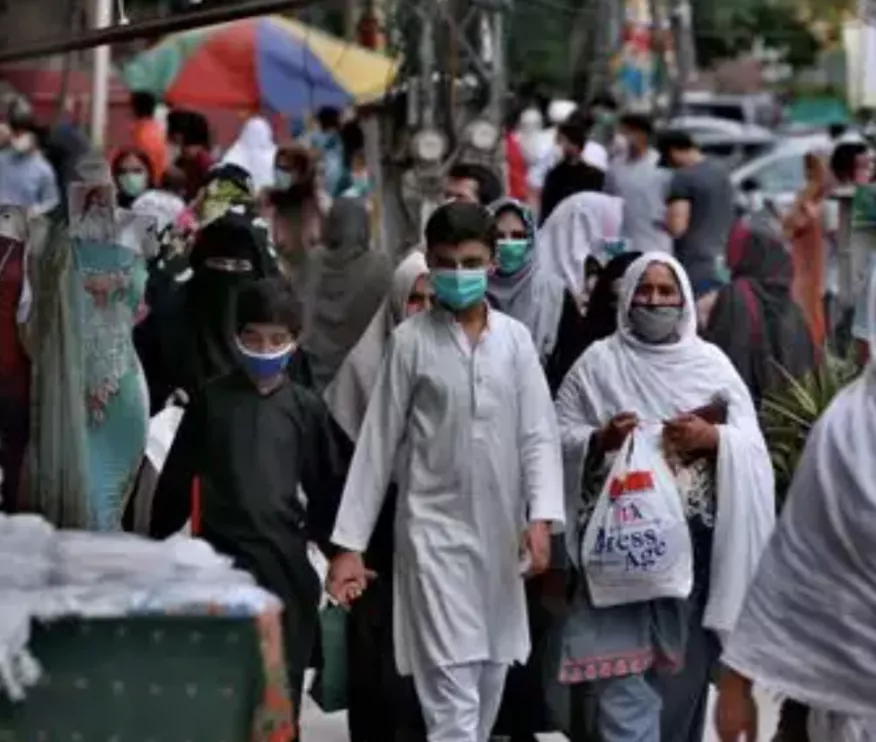Stricter SOPs planned for worst-hit areas in Punjab
Punjab has so far reported over 40,000 Covid-19 infections
LAHORE: Following a stark warning from the World Health Organisation (WHO), Punjab Health Minister Dr Yasmin Rashid has announced imposition of strict lockdown in the areas worst hit by coronavirus in the province.Addressing a daily briefing on the latest situation of novel coronavirus (Covid-19) in the province, the health minister said the government has decided to further tighten the implementation of the SOPs. The areas worst hit by the Covid-19 can be closed in coming days to slow down the spread of the disease following approval of the cabinet committee on coronavirus.
Dr Rashid highlighted that there were 40,819 confirmed cases of Covid-19 in Punjab so far and 1,916 new cases had surfaced in the last 24 hours.
She highlighted that so far 773 people had lost their lives, while 48 deaths were reported in the last 24 hours.
She pointed out that 8,300 patients had been discharged from hospitals after recovering from the disease. So far 299,057 coronavirus tests have been performed in Punjab, including 9,023 in last 24 hours.
The minister indicated that Lahore was the worst-hit district in Punjab with 19,299 patients of which one-third have recovered so far. Rawalpindi has 3,196 patients, Gujranwala 1,767, Multan 2,261 and Faisalabad 2,765, she added.
She underlined that the number of confirmed cases has multiplied owing to the non-serious and casual attitude of the people and lack of compliance with the safety SOPs.
“People must know that the coronavirus pandemic is real. We have to comply with the safety SOPs. The government has to initiate action against violators of the SOPs as a last option and people must show responsibility and comply with the SOPs,” she stressed.
Giving demographic details of coronavirus patients, she highlighted that around 75% of them were from the 50+ age group.
Dr Rashid said there was no truth in rumours of shortage of beds and ventilators in public hospitals. Patients may not be sent to the hospitals of their choice during the current situation. In high dependency units of Punjab, on 53% beds treatment is being provided to coronavirus patients. All necessary facilities are available for coronavirus patients in government hospitals.
In the ICUs, she disclosed, on 52% beds treatment is currently being provided to coronavirus patients.
A central control room has been set up at the Mayo Hospital which is providing information and guidance to patients and their families besides Rescue 1122.
The minister also pointed out that trials of different medicines were underway in Pakistan and the rest of the world. “We are also conducting trials of Acterma medicine on 1,000 patients as approved by the chief minister,” she added.
Responding to media queries, the minister pointed out that only one company was manufacturing Acterma injection. The government has negotiated with the company to bring down the price to Rs102,000 per patient for full treatment. One patient will be given 400ml in 24 hours and the next dose will be given in the next 24 hours.
“The government has already barred the company from selling Acterma injections to private hospitals without approval and the Punjab Healthcare Commission will monitor implementation of this decision,” she said. The government has also decided to curb profiteering on injections.
She said no country has discovered any treatment of the disease and added that without proper trials and results, the use of injection can be harmful to patients. She indicated that so far only three in every 10 patients at the ICU were showing improvement. This is not a life-saving drug and not everyone can benefit from it.
Dr Rashid also highlighted the government has scaled up the testing capacity from 1,200 in March to 9,000 as of Tuesday.
Published in The Express Tribune, June 10th, 2020.


COMMENTS
Comments are moderated and generally will be posted if they are on-topic and not abusive.
For more information, please see our Comments FAQ